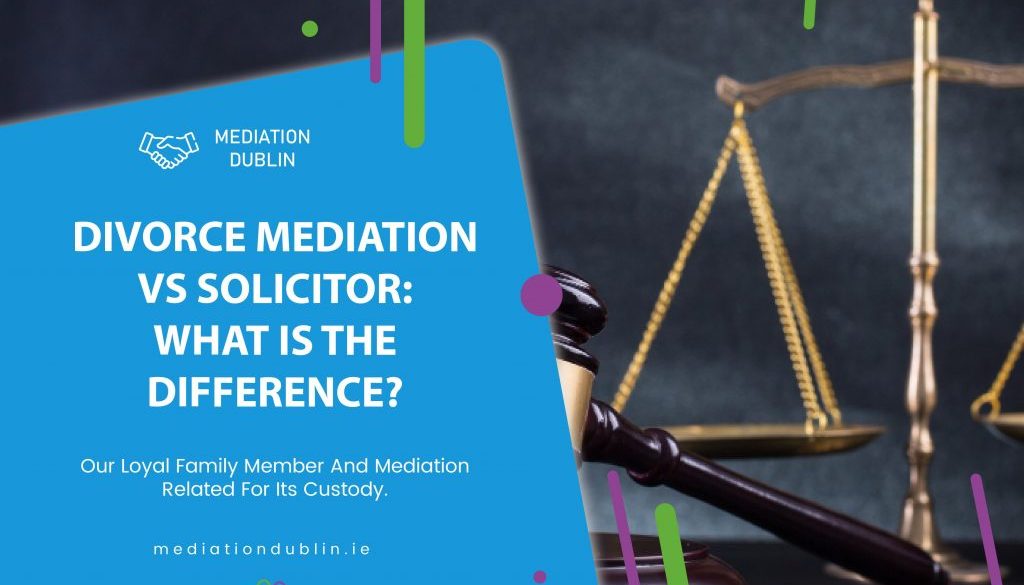Divorce Mediation Vs Solicitor: What Is The Difference?

The decision to divorce is a significant life event and how you choose to navigate the process can greatly influence the outcome. Two prevalent approaches are divorce mediation and hiring a Solicitor.
Both have their unique merits and challenges. In this guide, I’ll help you discern the differences between them, assisting you in making an informed choice.
Divorce Mediation
Definition:
Divorce mediation is a process where a neutral third-party Mediator assists couples in discussing and resolving issues related to their separation.
Key Characteristics:
Collaborative: Mediation is about finding mutual solutions rather than adversarial conflict.
Neutral Ground: Mediators do not take sides. Their primary role is to facilitate communication and ensure a fair process.
Cost-Effective: Generally, mediation is less expensive than traditional litigation.
Private and Confidential: Mediation sessions are private and the details discussed remain confidential.
Flexible: The process is often more flexible, with couples having a say in the outcome.
Solicitor
Definition:
A Solicitor represents an individual in the legal process of divorce, advocating on their behalf and ensuring their rights are protected in court.
Key Characteristics:
Adversarial: Solicitors are hired to represent and advocate for one party’s interests, often making the process more competitive.
Legal Expertise: They provide legal advice, ensuring you understand your rights and the implications of every decision.
Court Proceedings: If the divorce is contested and no agreement is reached, it will likely end up in court. Solicitors guide clients through these legal proceedings.
Formality: The process is bound by legal formalities and court protocols.
Potentially Higher Costs: Engaging Solicitors and going through court proceedings can be more expensive due to extended timelines and legal fees.
Key Differences Between Divorce Mediation Vs Divorce Solicitor
Nature of Process:
Mediation is collaborative and solution-focused while hiring a Solicitor can be more adversarial.
Role:
Mediators facilitate communication and help parties find common ground. Solicitors provide legal advice and represent their client’s interests.
Outcome Control:
In mediation, both parties have a direct say in the outcome. When Solicitors and Barristers are involved especially in contested divorces, decisions can be court-imposed.
Cost:
Mediation generally tends to be less expensive than hiring Solicitors and going through full-fledged court proceedings.
Duration:
Mediation can often lead to quicker resolutions, while legal battles in court can be protracted.
Conclusion:
Whether you opt for divorce mediation or hire a Solicitor depends on your unique circumstances, your relationship with your spouse and the complexity of the issues involved. It’s essential to evaluate both options, considering your emotional, financial and long-term needs.
If you’re contemplating which route to take and need guidance or support, I’m here to help. Remember, the goal is a fair and amicable resolution, no matter which path you choose.


